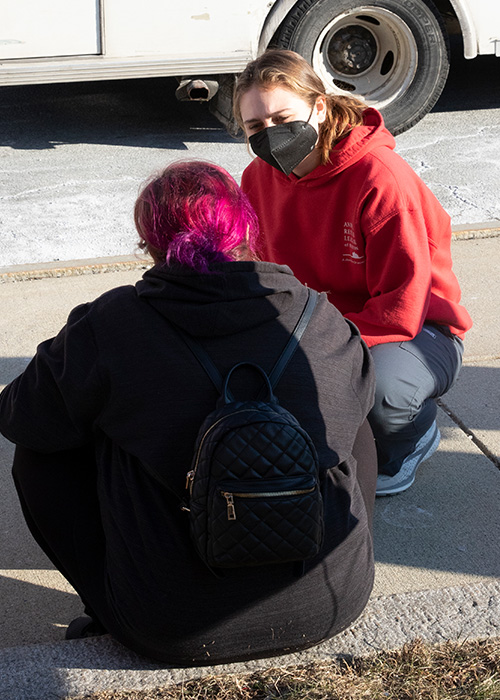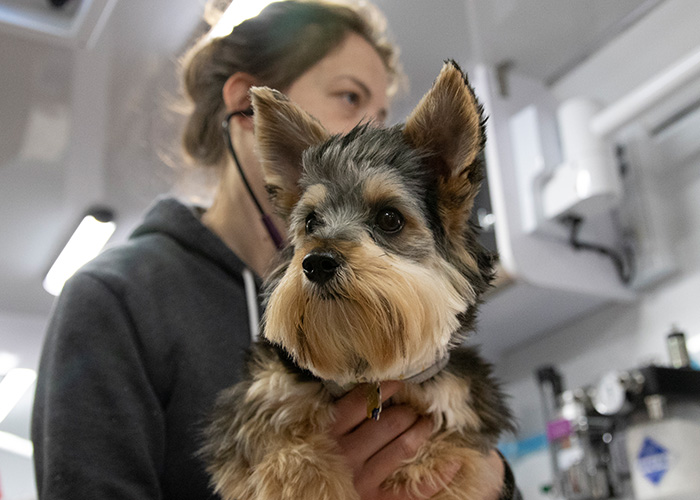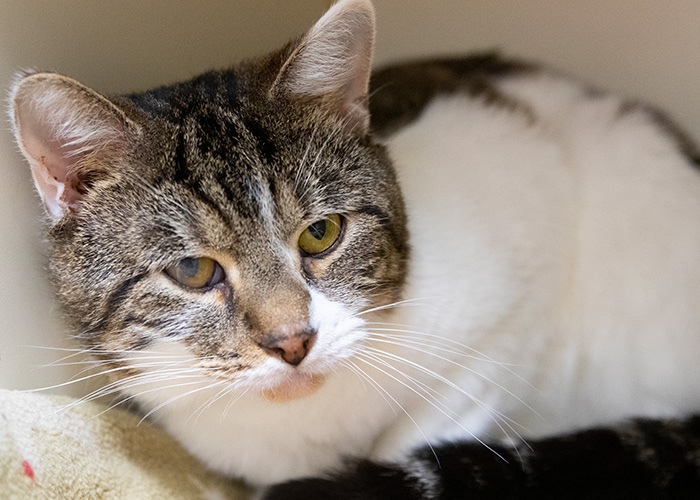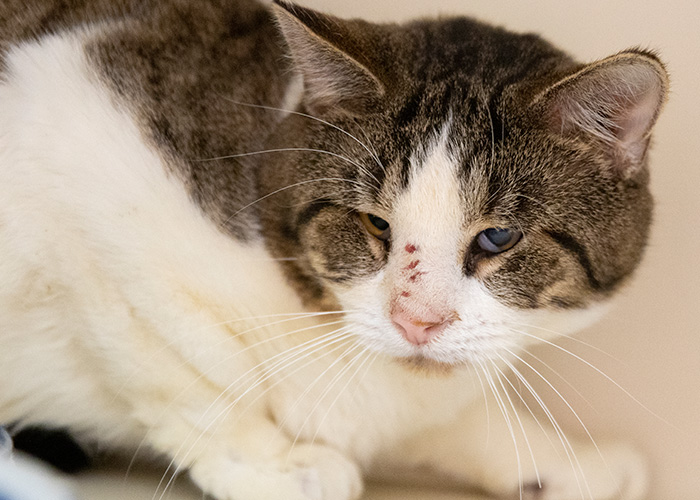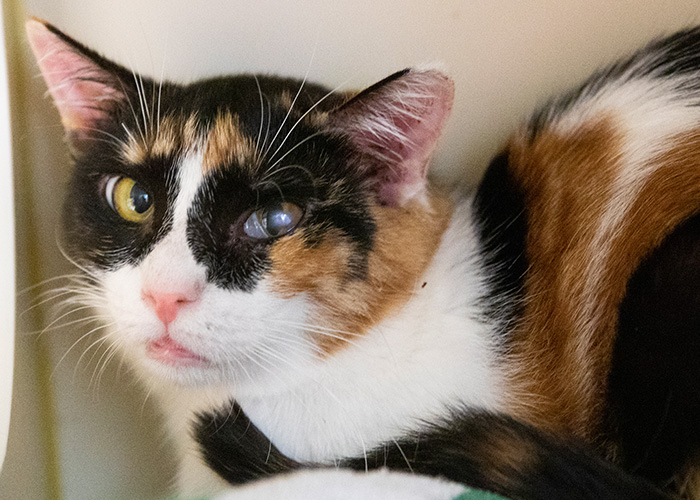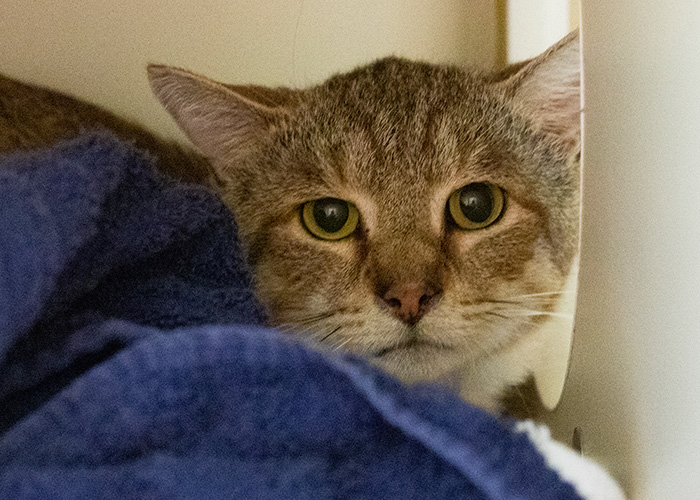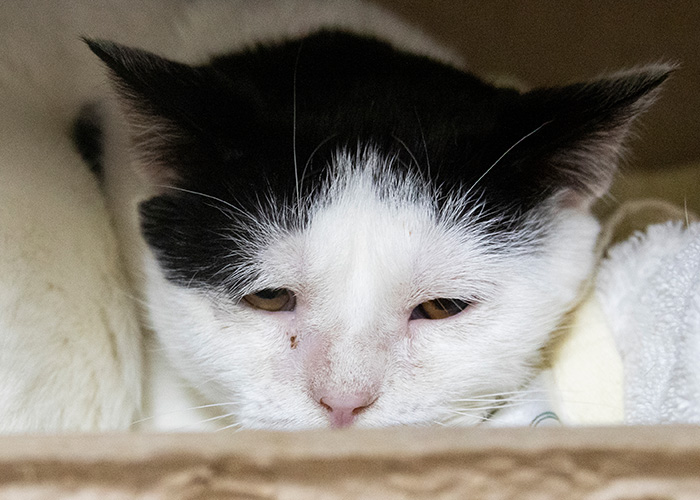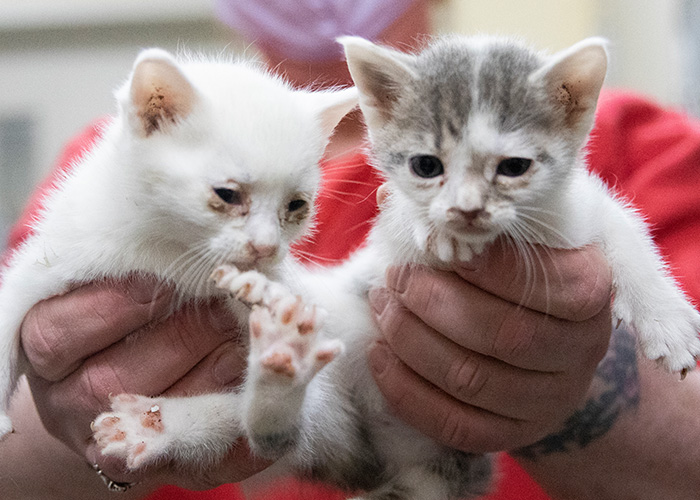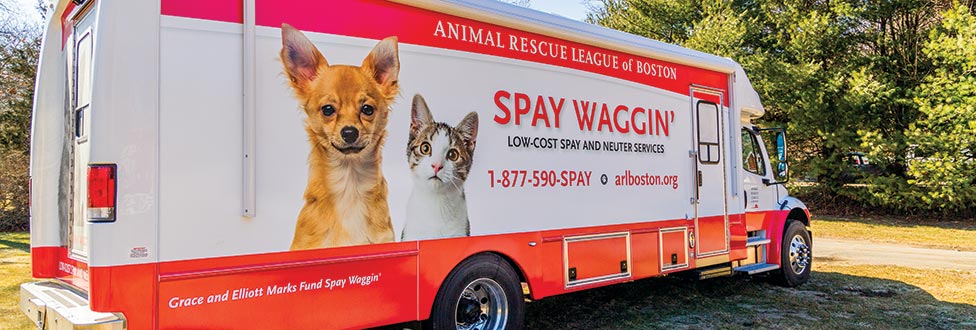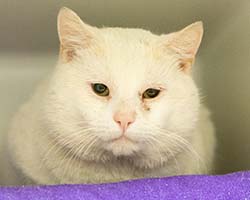ARL Continues Spay/Neuter Clinics with Massachusetts Animal Fund
Over the past several years, ARL’s Spay Waggin’ has been the focal point for a number of special clinics to deliver vital spay and neuter services to underserved communities, in partnership with the Massachusetts Animal Fund (MAF).
Primarily the clinics have taken place in Fall River, MA, an area along the South Coast of Massachusetts with a severe lack of accessible and affordable spay/neuter services.
This week, ARL and MAF teamed up once again, but this time delivering services to two dozen pet owners in New Bedford, MA – another South Coast area hard hit by a lack of accessible and affordable spay/neuter services.
The surgeries for these special clinics are under the MAF voucher program, which distributes vouchers to qualifying low-income pet owners to cover the cost of the important procedure.
Due to an incredibly high demand, many clinic clients had been on a waiting list for months and some upwards of a year to have their pets spayed or neutered.
These clinics give clients easy access to high-quality veterinary care, and the MAF vouchers remove the financial burden from pet owners who would otherwise be unable to afford the important procedure.
“I’ve been waiting for 8 months and was told there was a big demand but would be contacted and they reached about a month ago,” said Nicole Canfield, whose cat Jynx was spayed during the clinic. “It’s very important, and a giant help, my normal vet wanted over $300 just to fix her which I couldn’t afford on a fixed income.”
“My cat Midnight, – he’s year-and-a-half, and I needed to get him fixed,” said Spay Waggin’ client Brandi Mosher. “This program is great, I wouldn’t be able to get him fixed without it, I heard about this program through the animal control officer and am very grateful (for this service).”
ARL is slated to take part in clinics in both New Bedford and Fall River later this spring.
Making a difference since 2000
ARL’s Spay Waggin’ has been at the forefront of providing accessible and affordable high-quality spay/neuter services to the South Shore, South Coast and Cape Cod and the Islands since the program first hit the road in 2000.
Click here for more information and to book an appointment on the Spay Waggin’.







